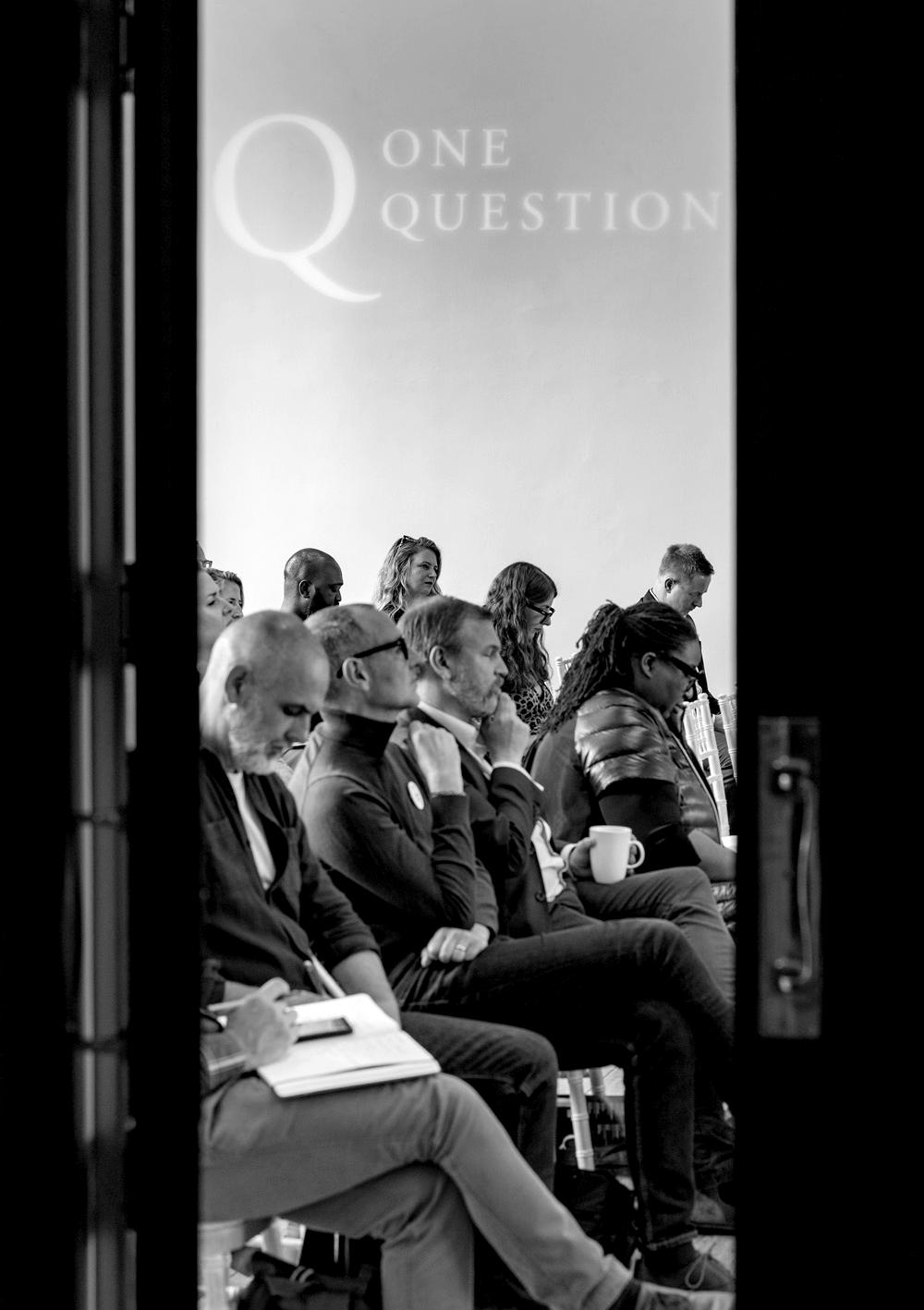
4 minute read
Conclusion from Sarah Parsonage
by One Question
“That version of education is a veneer, a symbol. It doesn’t actually cut deep enough.” Simon Gunning
“[People] are terrified to admit that there’s something wrong with [a loved one], and I think that comes down to us not wanting to admit that there’s something wrong with the world or the system – we would do anything to protect the system. I don’t know when we’re going to start to admit that society is broken and that’s the reason people are fucked up and taking their own lives. Then we’d be breaking down this thing that we all support and endorse, [and that’s a] more tricky one, that’s more sensitive, because we might feel a bit guilty.” James Golding
Advertisement
economic precarity and financial struggle in the current cost of living crisis have exacerbated a country-wide tidal wave of mental ill-health. In the face of these monoliths, what impact can education hope to have?
As we have seen again and again, it is impossible to extricate society from the forces that constitute it. The institutions that give our lives structure, the stories that give them meaning, must ultimately shift in order to make space for the smaller entities – food, media, law – to follow suit. As such, the answer to our question is perhaps about scale as much as substance. Education is ‘the answer’, if we can reframe the constraints of the conversation to encompass education itself – new ways of reasoning are crucial, and they’re just as likely to come from artists as politicians; from conversations as edicts. If in its purest form, education boils down to answering questions, it seems we must be prepared to ask altogether new ones.
Conclusion
The moral argument to build a business with integrity that fundamentally improves society is a straightforward one, but without regulation, this becomes a choice instead of a fundamental tenet of legitimate, purposeful, connected business. And unless it is fundamental we will always have two sides of one coin businesses’ fiduciary responsibility to shareholders versus the responsibility to society. The real question I, therefore, expected to discuss at this year’s annual conversation was not, is education the answer? But how? Against what commercial model, how can it scale? And how do we measure the impact both on society and the bottom line?
And I was right, in part. However, the most significant thread from seven different industry conversations featuring twenty leaders was the importance of internal education within a business first. Businesses must understand and then educate their stakeholders on how they and their industry service society, and in turn, the role society plays
in their business before they are in any position to educate society. Any form of regulation, be it through the lens of an Environmental Social Governance (ESG) framework or otherwise will be impossible to adhere to if the board does not understand that economic profitability and social profitability are intrinsically linked. And this must start with internal education.
Educating our teams, shareholders and customers that investing in a diverse team is not an argument of optics or a PR strategy, but ensures that the audience we are selling to is reflected in our businesses, from product innovation through to the supply chain. A diverse board, leadership team and supply chain means the business reflects society and therefore our customers, whether in the education system or the advertising industry.
The channel a CEO might choose to communicate strategically to 25000 employees across different cities is irrelevant if the message is not pertinent to the very people she is talking to. If the company fails to understand the challenges or benefits that are important to the individuals they employ, the channel they choose is largely obsolete.
The core of a business is its people and educating our boards, our exec teams and beyond on the role and responsibility we have to the community we serve enables us to develop a sense of personal agency within leaders. Change is no longer top-down but bottomup and top-down, and at a time when society is turning its head to business and industry to lead, in addition to or perhaps in place of Government, empathy, vulnerability and autonomy in leadership is fundamental to the success of the business. It must start with education.
Sarah
Sarah Parsonage



@__onequestion

1.question









